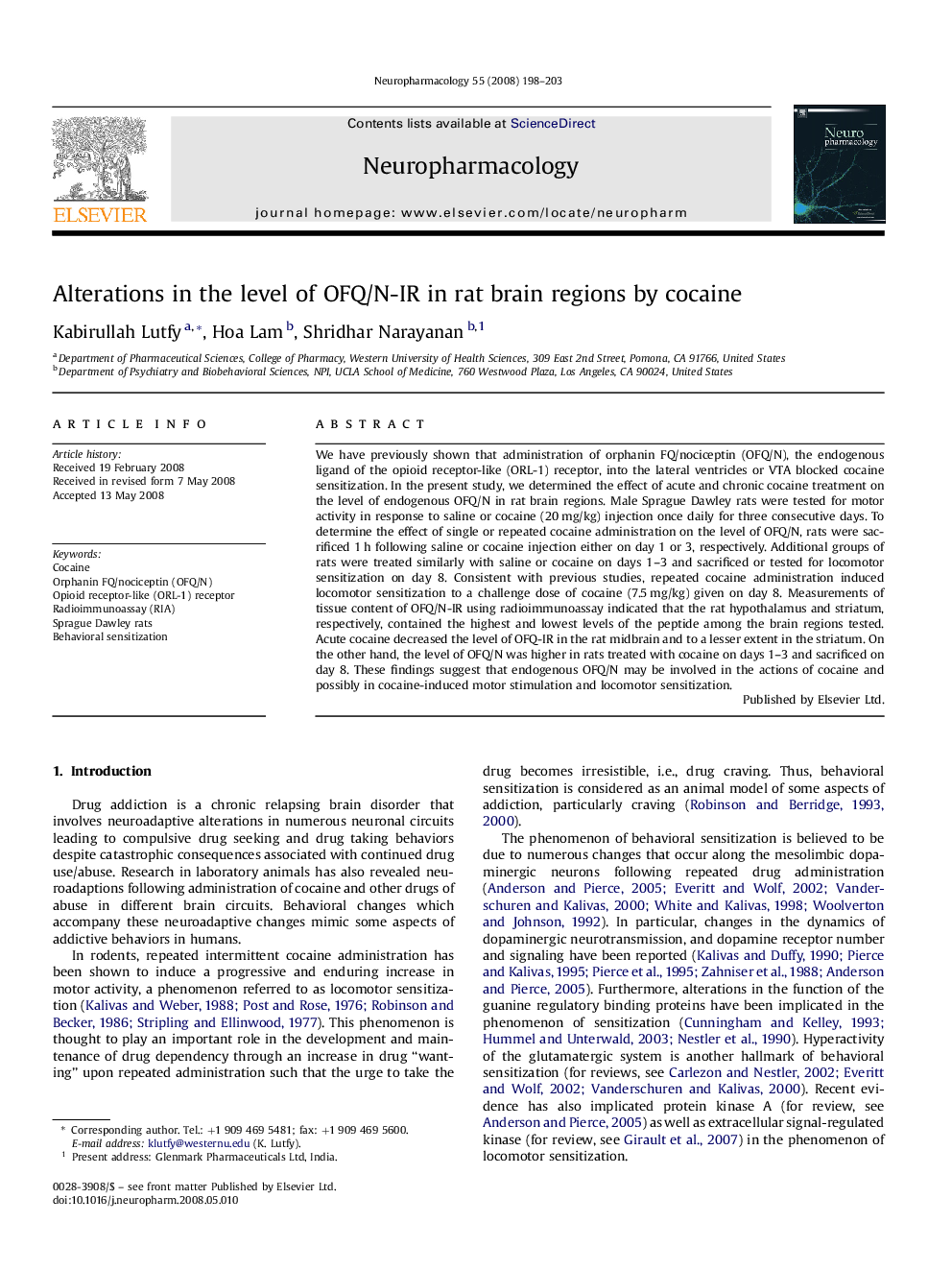| Article ID | Journal | Published Year | Pages | File Type |
|---|---|---|---|---|
| 2494730 | Neuropharmacology | 2008 | 6 Pages |
Abstract
We have previously shown that administration of orphanin FQ/nociceptin (OFQ/N), the endogenous ligand of the opioid receptor-like (ORL-1) receptor, into the lateral ventricles or VTA blocked cocaine sensitization. In the present study, we determined the effect of acute and chronic cocaine treatment on the level of endogenous OFQ/N in rat brain regions. Male Sprague Dawley rats were tested for motor activity in response to saline or cocaine (20Â mg/kg) injection once daily for three consecutive days. To determine the effect of single or repeated cocaine administration on the level of OFQ/N, rats were sacrificed 1Â h following saline or cocaine injection either on day 1 or 3, respectively. Additional groups of rats were treated similarly with saline or cocaine on days 1-3 and sacrificed or tested for locomotor sensitization on day 8. Consistent with previous studies, repeated cocaine administration induced locomotor sensitization to a challenge dose of cocaine (7.5Â mg/kg) given on day 8. Measurements of tissue content of OFQ/N-IR using radioimmunoassay indicated that the rat hypothalamus and striatum, respectively, contained the highest and lowest levels of the peptide among the brain regions tested. Acute cocaine decreased the level of OFQ-IR in the rat midbrain and to a lesser extent in the striatum. On the other hand, the level of OFQ/N was higher in rats treated with cocaine on days 1-3 and sacrificed on day 8. These findings suggest that endogenous OFQ/N may be involved in the actions of cocaine and possibly in cocaine-induced motor stimulation and locomotor sensitization.
Related Topics
Life Sciences
Neuroscience
Behavioral Neuroscience
Authors
Kabirullah Lutfy, Hoa Lam, Shridhar Narayanan,
